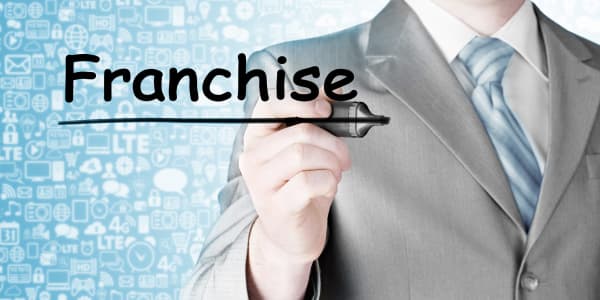Raising millions from the crowd
With celebrities like Spike Lee and cutting-edge companies such as virtual reality headset maker Oculus VR turning to crowdfunding sites to raise cash, it may look like an easy route to start-up success. Oculus VR was acquired by Facebook for $2 billion in March after raising $2.4 million on Kickstarter.
Researchers at University of California at Berkeley predicted late last year that the U.S. crowdfunding market could rapidly reach $3.98 billion.
But raising money this way is a lot trickier than it seems. "The dirty secret of crowfunding is that it's incredibly hard work," said crowdfunding expert Richard Swart, director of research at the Program for Innovation in Entrepreneurial and Social Finance at the Coleman Fung Institute for Engineering Leadership at UC Berkeley. "In crowdfunding, people behave like herd animals and follow success. If you haven't raised about 30 percent of your money in the first two to three days, the odds are pretty good you won't be successful."
The odds are about to get steeper. Nearly 1,000 crowdfunding sites have popped up since it began taking off about five years ago, according to a World Bank report released in late 2013.
Choosing the right site is essential for success. Here are seven sites worth considering if you need to raise money for a start-up.
By Elaine Pofeldt, Special to CNBC.com
Posted on 16 May 2014
Kickstarter
Thanks to its early dominance in crowdfunding, Kickstarter has become so ubiquitous, it's been the butt of jokes on the show "Portlandia" and in the New Yorker. But fundraisers take it seriously: On the five-year-old site, crowdfunders had raised more than $1.1 billion for 61,230 projects as of May 8—with 63 securing $1 million or more.
The site lets entrepreneurs use rewards-based crowdfunding, where supporters of a project pledge money in exchange for a small gift. It opted out of letting crowdfunders sell equity to accredited investors, which an SEC decision enabled last fall.
Kickstarter's most heavily funded project was the Pebble E-Paper Watch for the iPhone and Android phone, which raised $10.2 million from 68,929 backers in a campaign that ended in May 2012.
About half of Kickstarter's projects hit their fundraising goal, but the stakes are high: If projects don't meet their target in a set time period, the fundraisers collect nothing. Kickstarter takes a 5 percent fee if projects hit their funding goals.
Indiegogo
MBA student Danae Ringelman left her job in finance to start this site with friends Slava Rubin and Eric Schell in 2008, and it's now one of the top players in the rewards-based crowdfunding space. Indiegogo, based in San Francisco and New York City, does not disclose the total amount raised on the site, but distributes "millions of dollars a week in 224 countries," according to a spokesperson. Projects range from films to businesses.
The top campaign for 2013 was by the company Canonical to make the Ubunto Edge smartphone, which was expected to rival a desktop computer in what it could do. It raised more than $12.8 million, which the site called the largest amount pledged in crowdfunding history in its 2013 year-end review. However, Ubunto fell short of its $32 million goal.
The site has robust small-business and tech sections. New York City's iconic St. Mark's Bookshop recently embarked on a campaign to raise money for a move to a new location.
Women entrepreneurs take note: The site reports that female crowdfunders have had particular success on the site, with 47 percent of its fully-funded campaigns run by women.
Fundraisers pay between 4 percent and 9 percent of the money they raise to Indiegogo, depending on whether they hit their goal. Those who fall short can keep the money but must pay 9 percent.
RocketHub
After nailing a partnership with A&E TV last spring, this early crowdfunding player, based in New York City, is raising its profile. Crowdfunders will have a shot at being featured on A&E TV through its Project Startup, as well as a shot at funding by A&E. More than 30,000 projects have raised money on the site. RocketHub doesn't disclose the amount raised, but CEO Brian Meece said the partnership with A&E has resulted in nearly $1 million in funding for entrepreneurs so far.
Current campaigns range from one by Shimmy Chic Fitness, a belly dance–based workout program, to a company called Skeeball League's plea for help to pay legal costs involved in a lawsuit. RocketHub charges a 4 percent commission for projects that reach their fundraising goal, and 8 percent for those that don't, if the entrepreneurs want to keep the proceeds.
"We're seeing a lot more entrepreneurs; it's our fastest-growing segment," said Meece, explaining they share a desire for financing and exposure. "That's what's exciting about the A&E partnership. It really helps entrepreneurs tell their stories to a huge audience."
Crowdtilt
When a lender called the loan on Once Upon a Toy, a family business that owns two toy stores in Missouri, the owner announced to customers that she was at risk of closing after 26 years in business. Customers rallied, setting up a campaign that raised $82,450 on San Francisco-based Crowdtilt, a site that allows groups of people to pool money. Owners Shawnta Ray and Rick Harmon, a married couple, were able to renegotiate their loan with the bank and stay open, according to the local paper, the St. Louis-Post Dispatch.
Two-year-old Crowdtilt differs from Kickstarter and Indiegogo in that users can use the site to pool money for everyday events and projects, like collecting contributions from each person going to a group picnic.
The site has had some high-profile campaigns. After Watertown, Massachusetts, resident David Henneberry's boat got ruined in the standoff when the missing Boston Marathon suspect Dzhokhar Tsarnaev was found in it, contributors donated more than $50,000 to repair it. And just recently, with the NBA pressuring owner Don Sterling to sell after he made racist remarks, fans started a campaign on the site to raise $600 million to buy the Los Angeles Clippers and turn the basketball team into a nonprofit.
The site keeps 2.5 percent of transactions and charges a 2.5 percent processing fee for each contribution. It's got influential VCs behind it. The site raised $12 million in a round led by Andreessen Horowitz in March 2013 and nine months later followed that with a $23 million series B round, also led by Andreessen.
AngelList
When it comes to equity fundraising, "AngelList probably has, hands down, the most activity," Swart said. In May alone, the Silicon Valley site said it had raised $19.5 million for start-ups.
One current campaign promoted on the site lets investors back the spring 2013 class of start-ups from the prestigious accelerator AngelPad. Among these start-ups is GradSavers, a New York-based online platform for businesses to hire college grads for flexible work where they are paid based on their results; the payments go directly to their student loans. To help start-ups that try equity crowdfunding meet the SEC's requirement that they verify investors' accreditation status—which can be time consuming—AngelList launched new Accreditation Reports to accredit any investor, at no charge. The site raised $24 million in series B funding last fall from backers such as Google Ventures.
But AngelList has plenty of competition. Swart points to players like San Francisco-based MicroVentures and EquityNet, based in Fayetteville, Arkansas. Also key is the site CircleUp, which focuses on consumer products. Their success is due in part to deep experience in venture capital and finance, Swart said.
GoFundMe
When Kate's Pie Shop & Record Store, a hip local coffee hangout in Rockford, Illinois, needed to move to a new space recently, it turned to GoFundMe to raise $7,000—a campaign that's still in progress. Launched in 2010 in San Diego, GoFundMe said it has helped people around the world raise more than $280 million in donations since then, charging a 5 percent fee on transactions.
Users raise about $28 million a month. Many of the fundraisers on the site are everyday people supporting charitable causes, but small businesses and would-be entrepreneurs are well represented. In one recent campaign, a woman who is part of the Oglala Sioux Tribe and living on disability payments in Martin, South Dakota, after a serious childhood illness raised $675 in just over two weeks to start an auto-repair shop so she could support herself.
RallyMe
Many athletes have to operate almost like one-person businesses to finance their dreams—and for some it pays off, when they become a household name. When the U.S. Bobsled and Skeleton team needed to raise funds to make it to the Winter Olympics in Sochi, they turned to RallyMe.
RallyMe, which Swart has advised, has become the official association of a host of major sports organizations, ranging from the U.S. Speedskating team to the USA Cycling Team. The site was founded by serial entrepreneur Bill Kerig, who recalled selling candy bars door-to-door to cover fees for his youth hockey team and other sports fundraisers—and thought there had to be a better way.
Competition is heating up in the sports crowdfunding space, so expect to see more action here. New players range from Sportfundr, which has attracted many athletes who aren't at the Olympic level. Meanwhile, Alchemy Global, a platform for matching accredited investors with sports and entertainment companies, announced its launch on May 6.





